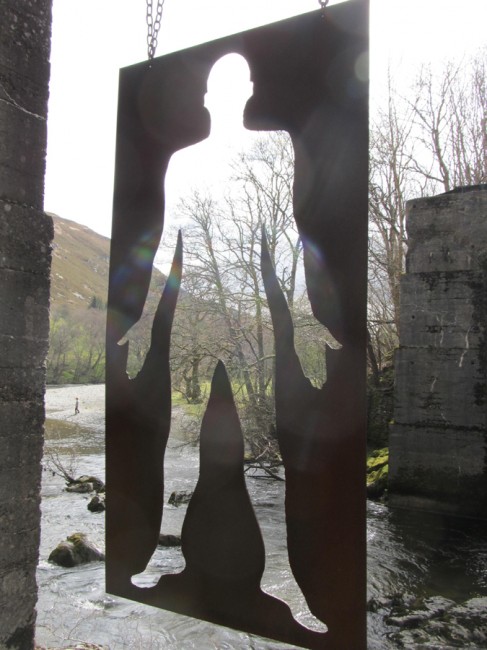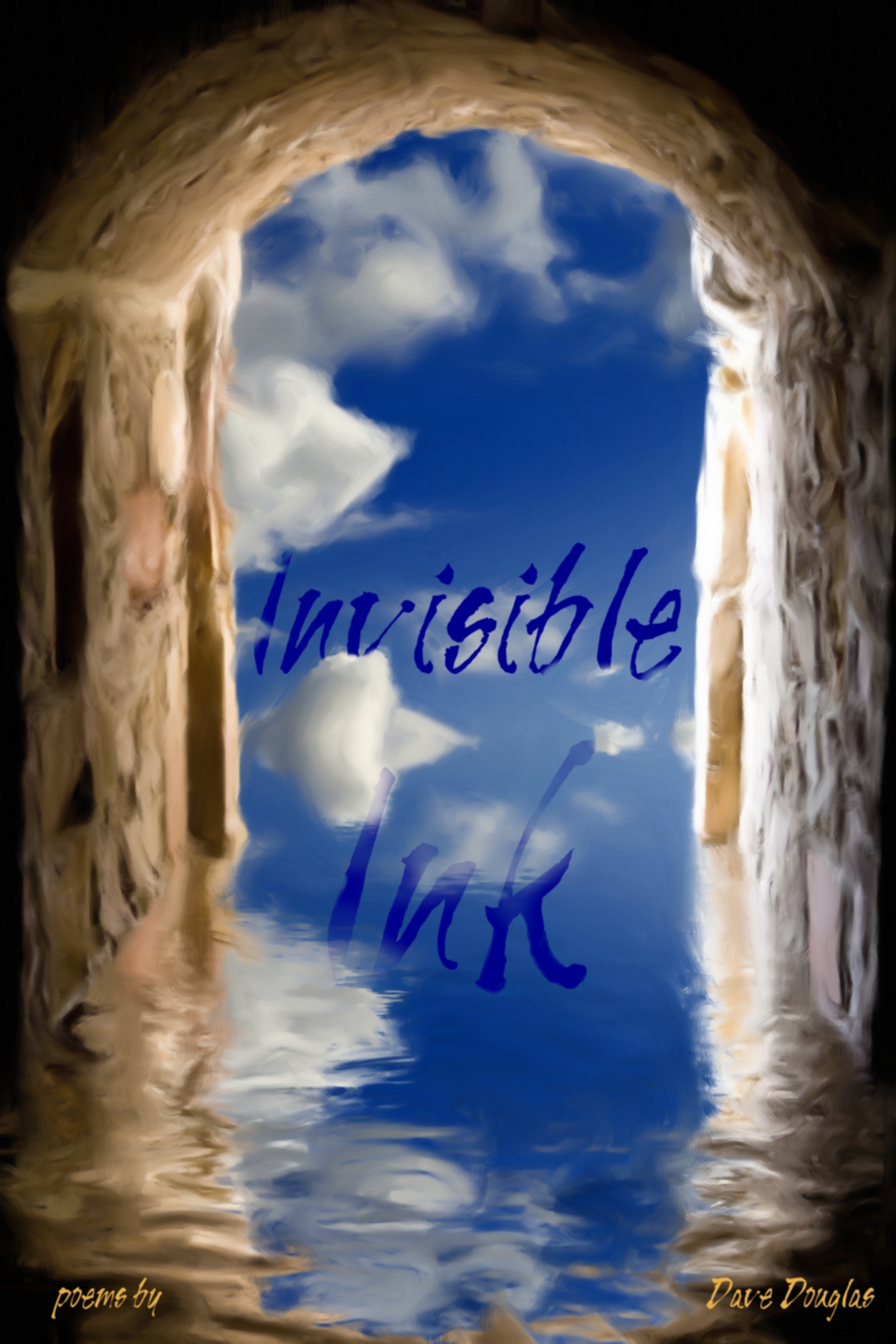First of all, here’s an announcement about one of our regular contributors!
Dave Douglas has released a new collection ‘Invisible Ink’ full of new poems.
To those who are trapped in their human shells, here is a collection of poems about struggle, questions and restoration. https://www.amazon.com/dp/B07RWWVQ2S/
This month’s theme is Presence/Absence. What does it mean to exist, to belong, to take your turn at existence and leave a mark, or not?
Sometimes absence can be the most ‘visible’ element of a scene, as in Daniel De Culla’s poem and accompanying photo of an empty chair.
This sentiment is echoed in Jaylan Salah’s tribute to the late poet Kevin Killian, where the loss of the writer sparks a retrospective examination of his life and work. Killian was unafraid to insert himself into the narrative of his poetry and prose, to make himself become forcefully present.
In a kind of contrast, Mark Young’s speakers withdraw to the background, relating non-linear information rather than personal narrative. Young’s work doesn’t always make linear sense, doesn’t create a speaker we can visualize, yet the lines of thought still flow, with the coherent rhythm and feel of an instruction manual. This suggests that it’s the ideas, or the ideas about the ideas, that matter over time, perhaps even more so than a particular person.
Molly Gaudry’s poetry collection Desire: A Haunting, reviewed by Cristina Deptula, presents a story of grief and memory, healing and absolution, before and mostly after, death.
Cristina Deptula also reviews San Francisco State University’s Department of Biological Sciences’ annual Personalized Medicine conference. The day’s presentations covered new laboratory developments in treating the causes of age-related health problems, as well as ways to address the care needs of the aging population in many countries. A major focus was increasing healthspan, the portion of one’s life when one’s healthy enough to show up and participate in normal life activities.
In Joan Beebe’s poem, ‘A Father’s Love,‘ a father and his disabled daughter fully show up for life together, completely present for each other because of their love. She also celebrates love for country in her July 4th Independence Day poem.
Roozario Wiggins illustrates the beauty and strength of a young girls’ basketball team on a Native American reservation in the U.S. who, in part due to his coaching, have risen to the occasion to show up for each other.
Chimezie Ihekuna shares an essay that outlines his interpersonal, sexual morality, centered on committed relationships rather than short-term encounters.
Some contributors’ pieces look at the ‘absence’ of some from society.Jaylan Salah analyzes how the sci-fi film Blade Runner metaphorically illuminates the ways sexism, racism, and classism and other prejudices cause real harm to people in cities such as Los Angeles. Rather than a city where everyone is beautiful and happy with the help of technology/plastic surgery, it’s a place where only a few are able to live that life while the rest end up unnoticed, listening to the radio alone in their cars.
In his nostalgic poetry, John Doyle writes of those who keep up with fashion and music, and of those who never quite connect with their times.
Judith Borenin sends us poems of beauty but also elements of decay and loss: a disheveled homeless man, destructive wildfires, fellow drivers grieving private tragedies in their cars.
Christopher Bernard gives us a sci-fi piece that presents a larger-scale look at change and decay: that of our entire planet, rendered uninhabitable by climate disruption. In this case we as a species have ‘excluded’ other species and the planet itself from our sense of who matters when we make decisions.
In contrast, Gloria Lopez’ piece describes the renewing power of a walk around a local lake, the joy of connecting with and noticing nature.
Mahbub’s poetry explores the different aspects of natural phenomena and human-made objects that have become natural to us, such as cell towers and service. Water, wind, and cellphone towers can connect us, literally and metaphorically. But water also destroys and erodes fertile land, leaving us lost and barren.
Some contributors ponder the place of one individual, somehow strangely present within a large universe. Who are we, what should we do here, what can we do here?
In works translated by Denis Emorine and Michael Steffen, Isabelle Poncet-Rimaud’s poetic speakers show up, with short vibrant bursts of feeling.
Kushal Poddar’s speakers find hope in difficult, painful places. His pieces are elegant and intentional with word choice, as determined to exist and hold onto their form as their speakers.
J.J. Campbell, our monthly prophet of death, aging and loneliness, contributes some vignettes where his speaker is able to step back and put his personal angst into a broader perspective.
Norman Olson also ponders his life’s purpose during a trip to Las Vegas. Why is he creating his artwork, what does he hope will come of his paintings? What would he do with a major lucky break that might come his way?
Lance Manion’s accidental hero inadvertently finds himself rescuing those in need while distracted, thinking of a woman who left him. Ironically, he loses his powers when she calls him, when he gets accepted again by someone in his real, ordinary life.
In Manion’s story, it seems to be one or the other: either you’re present for great worthwhile causes and adventures beyond yourself, or you’re fully involved in your closest personal relationships.
In Elizabeth Hughes’ monthly Book Periscope column, she reviews some books that focus on connection to one’s small circle and others that go beyond and connect to larger dramas, and several that do both.
Tina Heinrich’s Flopsy and Flathead and The Lumpa Rupper tell the story of beloved family pets. Nowrang Persaud gives a look at the culture of British Guyana while chronicling his own diligent hard work and journey out of poverty in Bitter-Sweet Sugar, while Michael Owhoko’s The Future of Nigeria outlines challenges facing a developing nation with a rich culture that’s plagued by corruption. J.R. Conway’s novel After the Ride uses a suspense novel and cast of characters to explore the human cost of cities’ paying for the homeless and mentally ill to leave town rather than investing in human services. Lawrence Wood’s The Transition: Initiated by Copernicus and Galileo, from Religion to Science looks at life at microscopic and then cosmic scales and encourages readers to choose a natural and scientific, rather than a supernaturally based, worldview.
Hopefully, this issue inspires you to be present, calls you forth into its world and encourages you to read its offerings.



